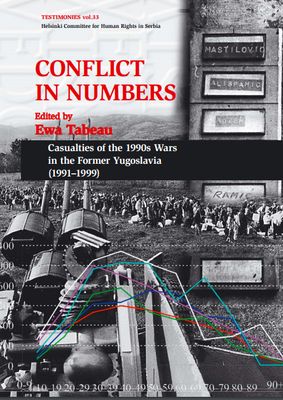

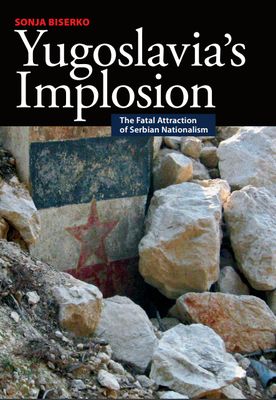
This is a courageous book, in which the author indicts a large portion of her society, and most especially politicians, for aggressive nationalism. This, she argues, has been the main reason both for the wars of 1991–99 and for the continued volatility which characterizes Serbian political life. This is also a work of passion, reflecting simultaneously a deep sadness about the decisions and actions taken by Serbian political figures over a period of more than a century, and a determination on her part to work for a better future for Serbia. Biserko has many admirers but, inevitably, she also has foes, and has been attacked at times in the local nationalist press.
More...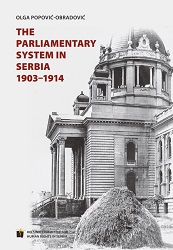
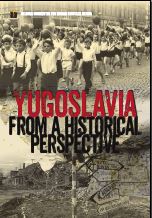
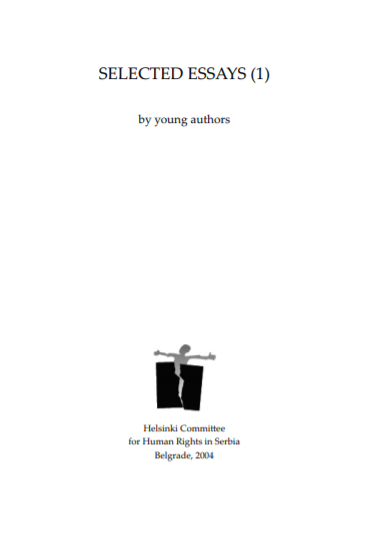
Keywords: human rights; children's rights; Romani people; social development; vicious reality; inter-ethnic relations; democracy; Yugoslavia; Germans; modernism; ethno-symbolism; nationalism; identification;
This is the first collection of selected essays by the authors who attended the courses and seminars the Helsinki Committee for Human Rights in Serbia organized in 2004. Within the three-year project “Building up Democracy and Good Governance in Multiethnic Communities” that is being implemented with the assistance of the European Union, twelve 5-day “schools of democracy” and eight 3-day seminars under the common title “Life and Living in Multiethnic Environments” were held in 2004 in Belgrade, Novi Sad, Kragujevac and Novi Pazar. Over 500 trainees attended these courses and seminars. The project is aimed at capacitating young people – by the means of attractive and interactive courses of training – not only for a life in multiethnic communities that are particularly burdened with the adverse experience of the recent past, mutual distrust and stereotypes, but also for a life in the conditions that mark a modern democracy and reflect its standards. An objective as such implies, among other things, rational perception of notions, developments and trends that are in Serbia still blurred, marginalized and subject to relativism or, moreover, to various and even misguiding interpretations. The Helsinki Committee’s experience testifies this is all about a process that takes time but is worthy of effort – the more so since young people, as evidenced by the selected writings as well, fully perceive it as an imperative need of their own.
More...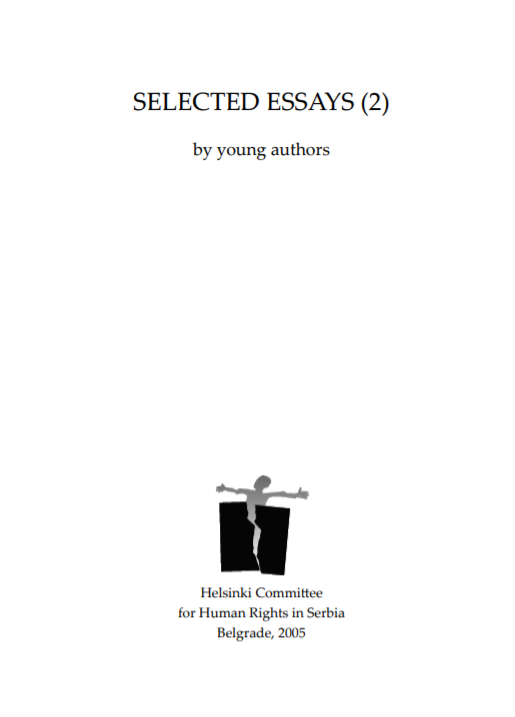
Keywords: hatred; Serbia; inter-ethnic relations; customs; cultural anthropology; politics; democracy; media; human rights; human liberties; young people; 1990's; aesthetics; football; nationalism;
This is the second collection of selected essays by the authors who attended the courses and seminars the Helsinki Committee for Human Rights in Serbia organized in 2005. Within the tree-year project “Building up Democracy and Good Governance in Multiethnic Communities” that is being implemented with the assistance of the European Union, twenty-four 5-day “Schools of democracy” and sixteen 3-day seminars under the common title “Life and Living in Multiethnic Environments” were held in 2004 and 2005 in Belgrade, Novi Sad, Kragujevac and Novi Pazar. Over 1000 trainees attended these courses and seminars. The project is aimed at capacitating young people - by the means of attractive courses of training - not only for a life in multiethnic communities that are particularly burdened with the adverse experience of the recent past, mutual distrust and stereotypes, but also for a life in the conditions that mark a modern democracy and reflect its standards. An objective as such implies, among other things, rational perception of notions, developments and trends that are in Serbia still blurred, marginalized and subject to relativism or, moreover, to various and even misguiding interpretations. The Helsinki Committee’s experience testifies this is all about a process that takes time but is worthy of effort - the more so since young people, as evidenced by the selected writings as well, fully perceive it as an imperative need of their own.
More...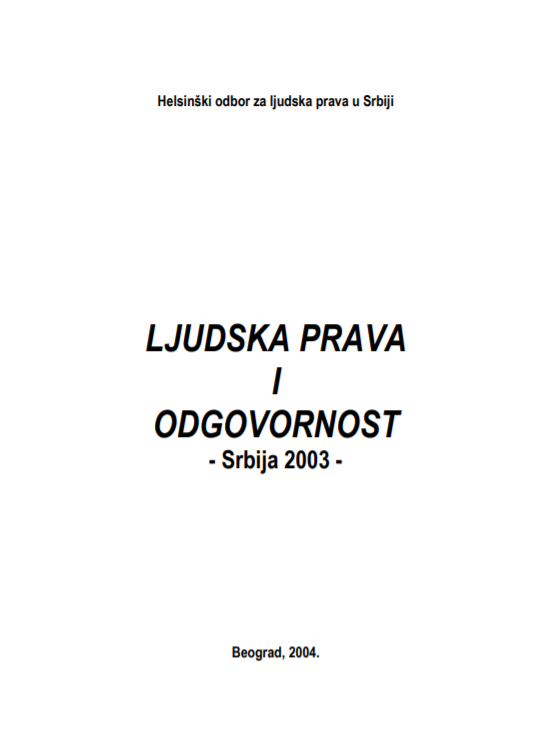
Keywords: Serbia; 2003; politics; Zoran Djindjic assassination; Orthodox church; military; police; economy; social rights; reform of educational system; media; national minority; Vojvodina; Sandžak; inter-ethnic relations;
Ubistvo premijera Zorana Đinđića obeležilo je ne samo celu 2003. godinu, već će, sudeći po razvoju situacije u Srbiji, predstavljati istorijsko raskršće za Srbiju: za ili protiv Evrope. Ubistvom reformskog premijera, ne samo da su zaustavljene reforme i prekinuta saradnja sa Haškim tribunalom, već je otvoren put radikalizaciji Srbije, što su potvrdili i vanredni parlamentarni izbori. Nesposobnost i nespremnost DOS da napravi diskontinuitet sa Miloševićevim politikom, posebno ratnom, otvorilo je put restauraciji regime anciene i ubedljivoj pobedi njegovih predstavnika na vanrednim parlamentarnim izborima. Od ubistva premijera Zorana Đinđića do parlamentarnih izbora ostvareni su skoro u celosti ciljevi puzećeg puča, uprkos pokušaju međunarodne zajednice da održi kurs reformi kroz, pre svega, prijem SCG u članstvo Saveta Evrope već tokom vanrednog stanja. Sve aktivnosti ujedinjenih snaga (cela opozicija, većina nevladinih organizacija i medija) bile su usmerene na obaranje vlade i njenu kompromitaciju. Na izborima su pobedile one snage koje su zbog rešavanja "nacionalnog pitanja" odlagale tranziciju i demokratizaciju društva. Zbog istrošenosti i poraza nacionalnog projekta, kao i zbog sprečavanja stvaranja alternative, konzervativna srpska elita našla je novi oslonac populističke politike u produkciji afera i skandala. Njihov cilj nisu bile ekonomske reforme već diskvalifikacija protivnika, što je potpuno devalviralo stvarnu borbu protiv korupcije, kao i same reforme. Pobeda SRS i DSS garancija je da će se kurs nastaviti, što se prelama preko debate o novom ustavu, rešavanju kosovskog i vojvođanskog pitanja, saradnji sa Haškim tribunalom, odnosu prema državnoj zajednici i odbijanju suočavanja sa neposrednom prošlošću. Radikalizacija politike u Beogradu dodatno destabilizije, ne samo zemlju, već i ceo region.
More...
Keywords: testimony; 2005; Zoran Đinđić; Vladimir Popović; assassination; politics; crime; interrogation;
Proces optuženima za atentat na Zorana Ðinđića je test spremnosti sudstva i srbijanskog društva za suočavanje sa pravim razlozima zbog kojih je prvi demokratski premijer brutalno ubijen. Istovremeno, njegov ishod pokazaće i meru spremnosti Srbije da raskine sa nasledjem režima Slobodana Miloševića i njegovom ratnom politikom. Takva ključna odrednica determinisala je i tragičnu ličnu sudbinu Zorana Ðindjića. Atmosfera koja je prethodila i najavila njegovo ubistvo karakteriše i tok sudskog procesa. Nastavljeno je sa opstrukcijama i diskreditacijama, ne samo Zorana Ðindjića, već i svih svedoka koji su njegovo ubistvo stavljali u politički kontekst bez kojeg se ono ne bi bilo moguće.
More...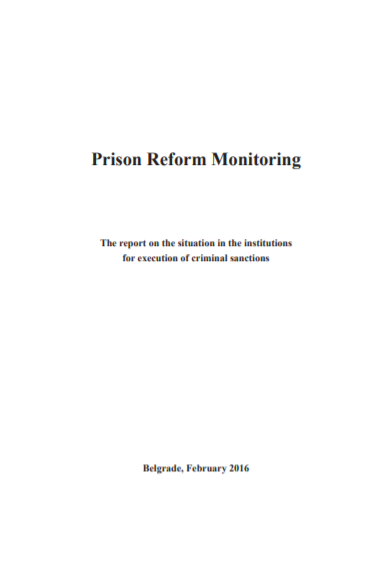
Keywords: prison reform monitoring; Niš; Sremska Mitrovica; Zabela; Požarevac; Valjevo; prison hospital; living conditions; health care; treatment; Kragujevac; Belgrade; Subotica; Sombor; Zrenjanin; Novi Sad; Smederevo; Pančevo;
The Helsinki Committee for Human Rights in Serbia (HCS) continued monitoring the prison system reforms in 2015, i.e. the reform of the institutions for the enforcement of criminal sanctions in Serbia. The project entitled "Continued monitoring of the prison system reforms" was supported by the Civil Rights Defenders. Visits to the institutions for the enforcement of criminal sanctions and offices for alternative sanctions were accomplished with the permission and support of the Ministry of Justice and the Directorate for Enforcement of Criminal Sanctions, while the visits to the detainment units were accomplished with the license and support of the presidents of higher courts with jurisdictions over the territory in which they are located. The expert team performing the monitoring of the institutions for the enforcement of criminal sanctions comprised the lawyers from the Helsinki Committee, Ljiljana Palibrk and Jelena Mirkov, full-time professor at the Faculty of Special Education and Rehabilitation Dr Zoran Ilić and a specialist of general practice medicine, Dr Aleksandra Bezarević. During the project that took part in the second half of the 2014, the Helsinki Committee team visited six institutions in the competence of the Directorate for Enforcement of Criminal Sanctions at the Ministry of Justice: five penitentiaries (in Niš, Sremska Mitrovica, Zabela, Požarevac and Valjevo) and Special Prison Hospital in Belgrade. In addition, Offices for Alternative Sanctions in these cities were also visited. The continuation of the project in 2015 encompassed visits to seven district prisons in Subotica, Kragujevac, Belgrade, Zrenjanin, Novi Sad, Smederevo and Pančevo and two visits to penitentiaries in Sombor and Padinska Skela. In 2015, the Helsinki Committee team also visited six offices for alternative sanctions in Subotica, Sombor, Kragujevac, Novi Sad, Smederevo and Pančevo.
More...
Keywords: military; politics; inter-ethnic relation; war; peace and conflict studies; security; NATO bombing; 1990's; Kosovo; Serbia; Montenegro;
If history teaches us what life is all about, and this is true, then books are testimonies assisting history to show to the next generations where we are and why we have made mistakes instructing us not to stumble twice upon the same obstacle. "Military Secret" is a testimony which came to existence by a concurrence of peculiar circumstances and thanks to my own aspiration to expose entirely and at any cost the position and the role of the top military brass in preservation of an insane regime, alien to both the Serbs and the Montenegrins, at the beginning of the 21st century. Having been drawn into the games of big security services, dragged out of anonymity and motivated by my personal hardships and suffering, but also thanks to good people from the military and the police, I was in a position, amongst other things, owing to kindness of other people, to influence, perhaps, certain currents of history in, judging by everything, now former Yugoslavia. I am aware of the fact that the state is grateful to an individual only while it needs him/her.
More...
Keywords: military judiciary; Goran Matić; elections; politics; regime; military TV channel; Slobodan Milošević; Vojislav Koštunica; military court;
If we assume that history teaches us about life - which indeed it does - then the testimony contained in this book should help history to explain to the succeeding generations where we stand now and why we erred, at the same time warning them not to trip over the same stone again. Military Secret is a testimony born of a strange conjuncture of historical circumstances and my desire to expose fully and at all costs the place and role of the military leadership in maintaining, at the beginning of the 21st century, a sick regime uncharacteristic of both Serbs and Montenegrins. Having been drawn into the games of big services and dragged out of anonymity, as well as subjected to a personal ordeal, I have tried, drawing on the services of honest people in the Army and the police and encouraged by the generosity of others, to throw light on the course of historical events in the former Yugoslavia. Bearing in mind the fact that the individual has the gratitude of the state only as long as he is needed, and having no desire for revenge or any remorse for what I did, I shall try in the succeeding pages to give my own account of my persecution at the hands of the regime and to present authentic evidence about how certain politicians and generals abused their office and rank to the detriment of the people to which they belong.
More...